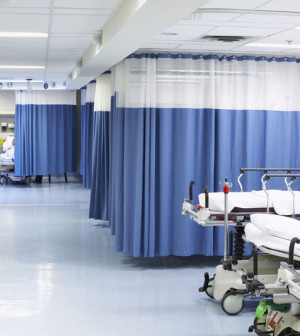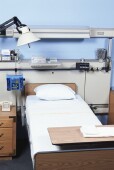- Could Artificial Sweeteners Be Aging the Brain Faster?
- Techniques for Soothing Your Nervous System
- Does the Water in Your House Smell Funny? Here’s Why
- Can a Daily Dose of Apple Cider Vinegar Actually Aid Weight Loss?
- 6 Health Beverages That Can Actually Spike Your Blood Sugar
- Treatment Options for Social Anxiety Disorder
- Understanding the Connection Between Anxiety and Depression
- How Daily Prunes Can Influence Cholesterol and Inflammation
- When to Take B12 for Better Absorption and Energy
- Epsom Salts: Health Benefits and Uses
Hospital Design May Not Boost Patient Satisfaction, Research Suggests


Hospital design has little effect on patient satisfaction, according to a new study.
Researchers analyzed surveys of more than 5,600 hospital patients in both newly renovated facilities and older facilities.
“Our team wanted to know how important aesthetics are to a patient’s experience with care. So we looked at surveys from patients before and after a move. We then compared those results to satisfaction surveys from patients being cared for on similar units that had not undergone a move to a new facility,” said study author Dr. Zishan Siddiqui. He is an assistant professor of medicine at Johns Hopkins University School of Medicine.
“We originally thought new and pleasing surroundings would improve patient satisfaction scores with physicians, nurses and overall care, but our study showed this is not the case,” Siddiqui said in a Hopkins news release.
The study appears in the March issue of the Journal of Hospital Medicine.
Some hospital officials believe that improving their facilities to be more patient-focused will automatically improve patient satisfaction.
“Not so. Hospital leaders will have to stop blaming poor patient satisfaction scores on aging buildings and units,” Siddiqui said.
“Although we did see significant improvement in facility-related satisfaction scores [in newer facilities], we did not see significant change in satisfaction related to care, or overall satisfaction, for that matter,” he added.
More effective ways to improve patient satisfaction include training health care providers on personalized care, educating patients, and involving families in care decisions, the researchers said.
More information
The American College of Surgeons has more about doctor personalities and burnout.
Source: HealthDay
Copyright © 2026 HealthDay. All rights reserved.










